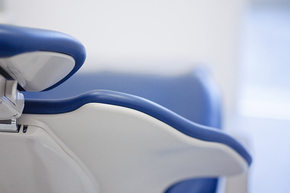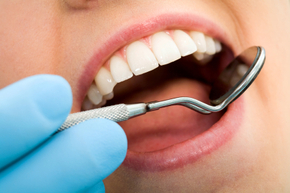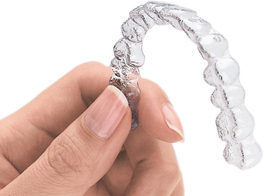For first-time patients to the practice (other than emergency care visits or those referred for non-comprehensive care) we conduct a thorough evaluation including; a dental and medical history review, oral cancer exam, TMJ (jaw joints) exam, periodontal charting exam, digital photographs, digital radiographs and digital videography exam of the teeth and gums with the aid of the microscope.
Esthetic or cosmetic dentistry is generally used to refer to any dental work that improves the appearance (though not necessarily the function) of a person's teeth, gums and/or positioning of teeth. At Friedman dentistry we perform a variety of esthetic services including, but not limited to whitening, resin bonding, porcelain veneers, ceramic crowns and Invisalign®.
Orthodontic treatment helps teeth line up correctly creating a more stable bite, which in turn prevents teeth and dental restorations from prematurely breaking down. At Friedman Dentistry we utilize the Invisalign® orthodontic clear aligner system to gently and predictably move teeth to an ideal position.
A dental implant is a surgical component that interfaces with the bone of the jaw to support a dental prosthesis such as a crown, bridge, denture or to act as an orthodontic anchor. The basis for modern dental implants is a biologic process called osseointegration where materials, such as titanium, form an intimate bond to bone. The implant fixture is first placed, so that it is likely to osseointegrate, then a dental prosthetic is added. A variable amount of healing time is required for osseointegration before either the dental prosthetic (a tooth, bridge or denture) is attached to the implant or an abutment is placed which will hold a dental prosthetic. Success or failure of implants depends on the health of the person receiving it, drugs which impact the chances of osseointegration and the health of the tissues in the mouth. The amount of stress that will be put on the implant and fixture during normal function is also evaluated. Planning the position and number of implants is key to the long-term health of the prosthetic since biomechanical forces created during chewing can be significant.



